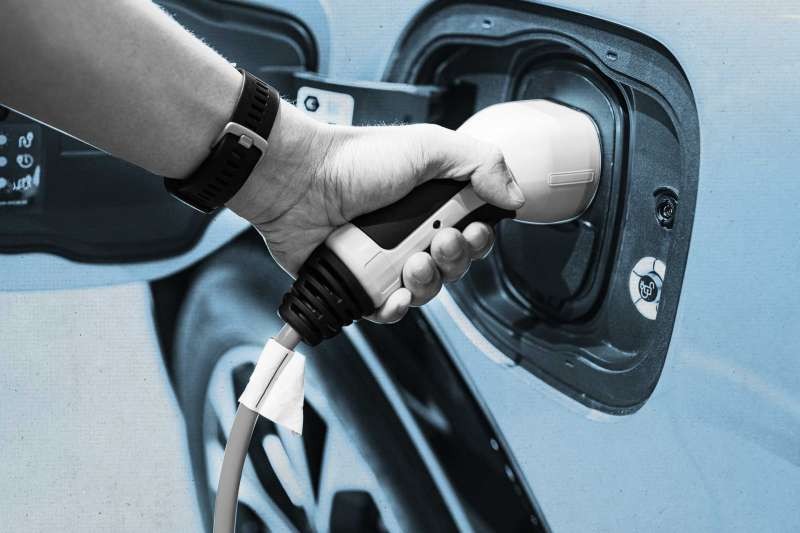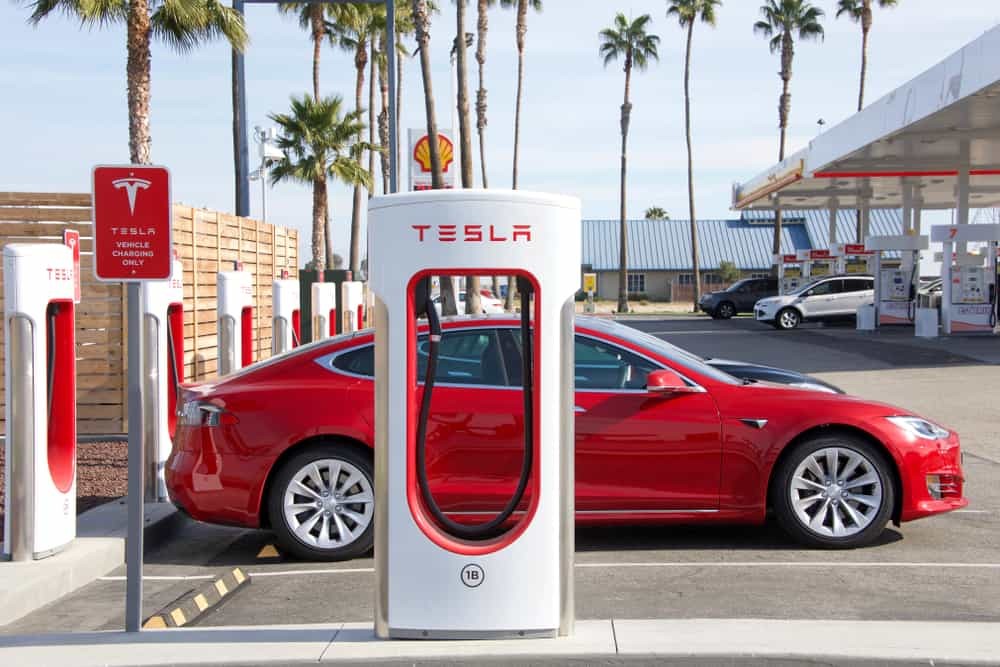Despite their environmentally friendly features, electric cars are receiving many complaints from Americans and Europeans.
 |
| Electric vehicles have been a focus of green economic policies in many Western countries, but governments are now changing their approach to this type of vehicle. (Source: Money) |
Climate change is always at the top of the international agenda because of its serious impact on people's lives. Therefore, governments around the world are trying to promote environmental protection initiatives, including the production and use of electric vehicles, which help reduce emissions and limit the consumption of fossil fuels.
However, American and European societies are currently divided on the issue of electric vehicles, accompanied by a wave of opposition to the development of this type of vehicle. So what has made electric vehicles no longer popular with Western people?
Opposition in the US
During his campaign in Michigan late last month, former US President Donald Trump asserted that the use of electric cars would cause the US to face inflation and widespread unemployment. Moreover, electric cars also come with two major problems: they are too expensive and inconvenient to travel, because the cars can only travel short distances before having to find a charging station.
As for cost, according to Kelley Blue Book, electric vehicles now cost an average of more than $58,000, putting them beyond the reach of many American households. Meanwhile, gasoline-powered vehicles cost an average of nearly $10,000 less.
Regarding employment, a report by the Economic Policy Institute shows that the US auto industry could lose about 75,000 jobs by 2030 if it switches to electric vehicle production.
Other Republicans have echoed Trump’s sentiment, arguing that by switching to electric vehicles, Americans are ceding their economy and national security to China, which controls much of the world ’s battery production and minerals.
In his economic plan announcement this summer, Florida Governor Ron DeSantis promised to “reverse Joe Biden’s electric vehicle policies” to reduce America’s dependence on China.
In addition, at the Republican presidential debate on September 27, Mr. Mike Pence affirmed that Mr. Joe Biden's green economic policy only serves the interests of Beijing, not the state of Detroit.
In addition to political rhetoric, Republicans have proposed initiatives to limit the growth of electric vehicles, such as additional taxes or regulatory barriers. In Texas, electric vehicle owners currently pay an additional $200 to the state each year, which would offset lost gas tax revenue. Senator Deb Fischer has proposed a bill that would require the company to pay $1,550 to the federal highway maintenance fund for every electric vehicle produced.
 |
| High costs and the risk of unemployment are two of the barriers preventing electric vehicles from taking off in Western markets. (Source: FreightWaves) |
Mixed views in Europe
In Italy, home to the Fiat and Ferrari brands, there is a wave of opposition to electric cars. Italian Transport Minister Matteo Salvini said that the European Union's (EU) proposal to ban the use of internal combustion engines only benefits China and causes widespread unemployment.
In 2022, nearly 270,000 Italians will work in the automotive sector. The European Automotive Suppliers Association (CLEPA) has warned that switching to all-electric cars could result in more than 60,000 job losses in the boot-shaped country by 2035.
Italians are reluctant to buy electric cars because of their high costs, said Felipe Munoz, an analyst at automotive data firm Jato Dynamics. As a result, sales of electric cars in Italy fell 26.9% last year, accounting for just 3.7% of the market, compared with the EU average of 12.1%.
In the UK, Chancellor Rishi Sunak announced that London was backing away from a series of climate commitments, while also halting plans to phase out petrol-powered vehicles by 2030-2035.
There are two reasons for Mr Sunak’s decision. First, petrol-powered cars have advantages over electric cars in terms of cost and convenience. Second, the British Prime Minister wants to use electric car and climate policy to attract support from voters in the upcoming election.
In addition to the government's views, a survey of British people's opinions shows that 37% of people do not buy electric cars because of the lack of fast charging points, 30% are concerned about the coverage area and the remaining 33% are not satisfied with the price.
In addition, in September, Italy, France, Poland, the Czech Republic and four other countries rejected the European Commission's "Euro 7" initiative, which was a proposal to tighten emissions limits on heavy-duty vehicles. Instead, EU industry ministers pushed for a less stringent version of "Euro 7" that would ease restrictions on gasoline-powered vehicles.
Thus, US lawmakers are dissatisfied with the adoption of electric vehicles for four main reasons: high costs, the risk of unemployment, inconvenient transportation and dependence on China. Similar protests are taking place across European countries, most notably the UK and Italy. Moreover, many EU countries are not unanimous in approving the "Euro 7" initiative.
Source



































































































Comment (0)